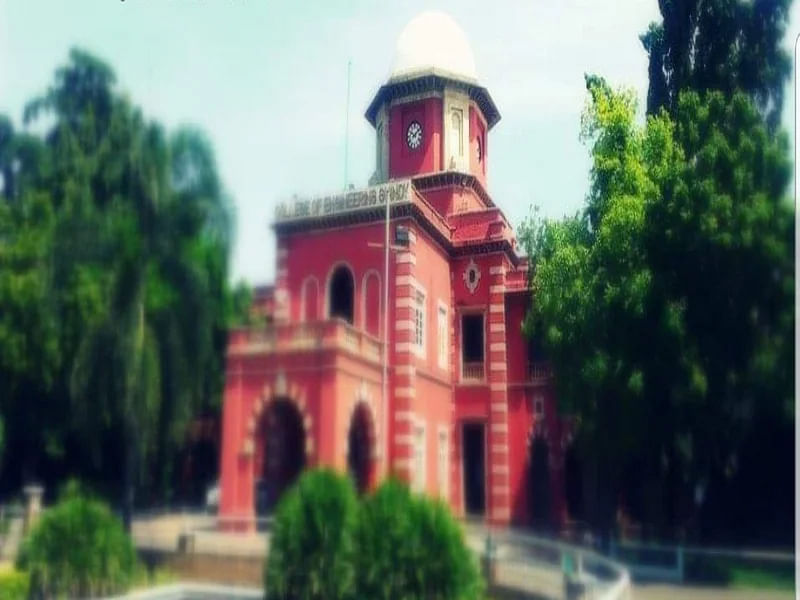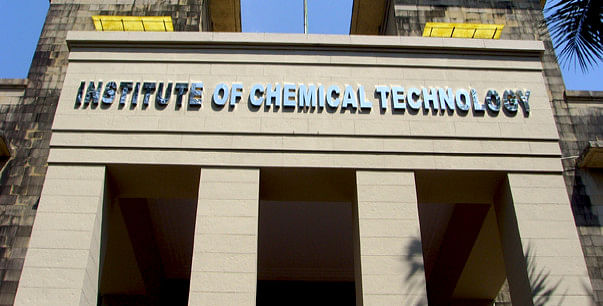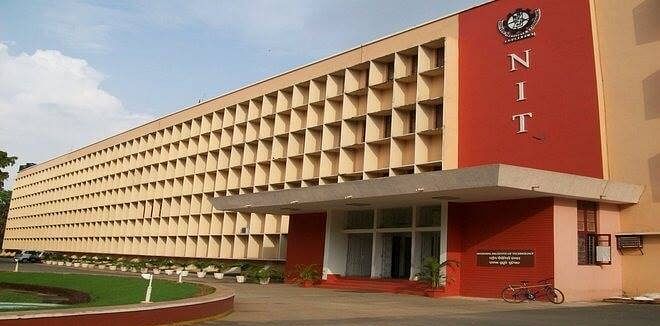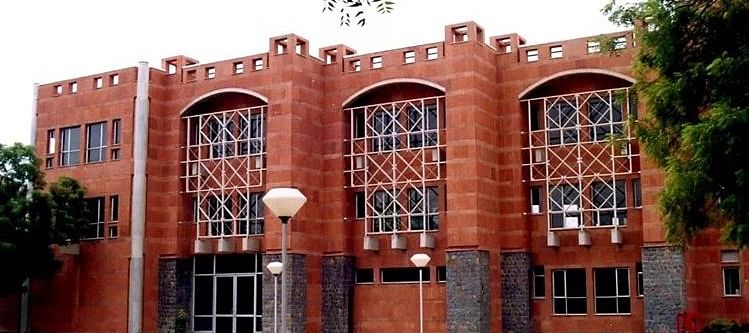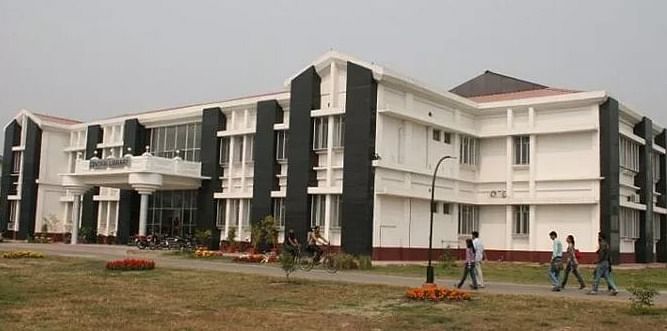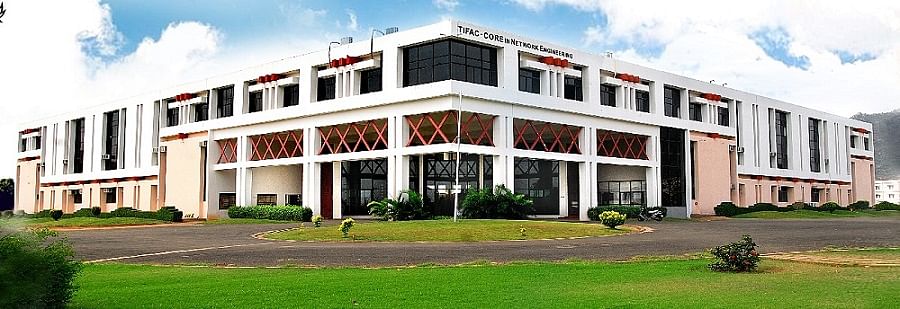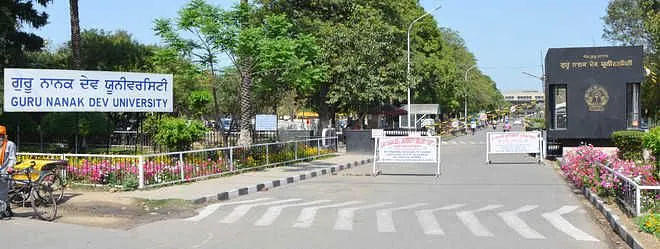B.Tech Food Technology Syllabus and Subjects

B.Tech Food Technology syllabus focuses on providing students with a comprehensive understanding of the scientific principles, engineering techniques, and technological advancements related to the Production, Processing, and Preservation of Food. The BTech Food Technology syllabus spans four years and is divided into eight semesters.
The core B.Tech Food Technology subjects include Food Chemistry, Food Microbiology, Food Biochemistry, Food Engineering, Food Processing Technology, Food Laws and Regulations, Food Product Development, etc. The elective subjects include Thermodynamics, Food Plant Hygiene & Sanitation, Food Materials Science, Food Storage Engineering, etc.
The B.Tech Food Technology course is structured to prepare students with the technical, scientific, and regulatory knowledge for successful careers in food production, processing, quality assurance, research and development, and related fields.
Table of Contents
Semester-Wise B.Tech Food Technology Syllabus
The B.Tech Food Technology syllabus is divided into eight semesters. The BTech Food Technology syllabus progresses from foundational concepts to specialised areas. A detailed account of the semester-wise B Tech Food Technology syllabus and subjects is provided in the sections below.
B.Tech Food Technology 1st Year Syllabus
The B.Tech Food Technology 1st year syllabus covers basic science and mathematics concepts and builds foundational knowledge in engineering principles in food science and technology.
The BTech Food Technology syllabus for the first year is given below.
| Semester I | Semester II |
| English | Mathematics II |
| Mathematics | Food Chemistry |
| Physics | Food Thermodynamics |
| Chemistry | Food Microbiology |
| Introduction to Biology | Basics of Food Processing |
| Basics of Food Engineering | Food and Nutrition |
| Engineering Drawing | Programming For Problem-Solving |
Practical Topics for 1st Year BTech Food Technology Syllabus
The B.Tech Food Technology practical topics for 1st and 2nd semester include:
- Physics Laboratory
- Chemistry Laboratory
- Microbiology and Biochemistry Laboratory
- Food Chemistry Laboratory
- Food Microbiology Laboratory
- Manufacturing Process Laboratory.
2nd Year B.Tech Food Technology Syllabus
The B.Tech Food Technology 2nd year syllabus advances into specialised areas of food technology such as Processing Technology, Fluid Mechanics, Food Biotechnology, etc.
The B.Tech Food Technology syllabus for the second and third semesters is outlined below.
| Semester III | Semester IV |
| Mathematics III | Processing Technology of Dairy Products |
| Fluid Mechanics | Unit Operations in Food Processing II |
| Unit Operations in Food Processing I | Food Biotechnology |
| Food Chemistry of Micronutrients | Food Process Engineering |
| Post Harvest Management of Fruits & Vegetables | Mass Transfer Operations |
| Food Plant Hygiene & Sanitation | Cereal, Pulses & Oilseed Technology |
Practical Topics for Second Year B.Tech Food Technology Syllabus
Listed below are the B.Tech Food Technology practical topics for 3rd and 4th semester:
- Fluid Mechanics Laboratory
- Unit Operations in Food Processing Laboratory
- Post Harvest Management of Fruits & Vegetables Laboratory
- Mass Transfer Operations Laboratory
- Food Process Engineering Laboratory
- Food Biotechnology Laboratory
3rd Year B.Tech Food Technology Syllabus
In the B.Tech Food Technology 3rd year syllabus, students focus on gaining practical experience through laboratory work and industrial visits.
Listed below is the third-year B.Tech Food Technology syllabus.
| Semester V | Semester VI |
| Heat Transfer Operation | Packaging Technology |
| Engineering Properties of Food Materials | Food Safety and Standards |
| Processing Technology of Dairy Products II | Waste Management in Food Industry |
| Food Additives & Ingredients | Food Storage Engineering |
| Technology of Spices, Flavors, and Plantation Crops | Industrial Visit |
| Elective | Elective |
Practical Topics for Third-Year BTech Food Technology Syllabus
Outlined below are the B.Tech Food Technology practical topics for 5th and 6th semester:
- Heat Transfer Operation Laboratory
- Engineering Properties of Food Materials Laboratory
- Food Additives & Ingredients Laboratory
- Dairy Technology Laboratory
- Technology of Spices, Flavors, and Plantation Crops Laboratory
- Packaging Technology Laboratory
- Process Control & Instrumentation Laboratory
B.Tech Food Technology 4th Year Syllabus
The B.Tech Food Technology fourth-year syllabus focuses on preparing students for professional roles in the food industry.
The fourth-year B.Tech Food Technology semester-wise syllabus is outlined in the table below.
| Semester VII | Semester VIII |
| Managerial Concepts for Food Technologists | Communication Skills and Personality Development |
| Meat Fish & Poultry Technology | In-Plant Training or Project Report |
| Bakery & Confectionery Technology | - |
| Research Methodology | - |
| Elective | - |
Practical Topics for 4th Year BTech Food Technology Syllabus
The practice topics of the 5th and 6th semester B.Tech Food Technology syllabus are listed below:
- Advanced Instrumentation Laboratory
- Bakery & Confectionery Technology Laboratory
- Meat Fish & Poultry Technology Laboratory
Also, Check: Jobs Scope of B.Tech Food Technology in India
B.Tech Food Technology Subjects
B.Tech Food Technology subjects comprise core, elective, and lab practical subjects that aim to provide students with a multidisciplinary education that merges theoretical and practical knowledge relevant to the food technology industry. The core and elective B.Tech Food Technology subjects are provided in the sections below.
Core BTech Food Technology Subjects
The core subjects in B.Tech Food Technology are crucial as they enable students to build a foundational understanding of the concepts, principles, and techniques that are applicable across various areas within the food industry. An overview of the important core BTech Food Technology Subjects and topics covered are provided in the table below.
| Core Subjects | Topics Covered |
| Food Chemistry | Importance of Food Chemistry, Water in Foods, Proteins: Functional Properties, Denaturation, Renaturation, Carbohydrate, Chemical Reactions of Carbohydrates, Lipids, Chemical Properties of Fats, Edible Fats and Oil, Enzymes, Enzymes Kinetics. |
| Food and Nutrition | Nutrient Requirements, Macronutrients, Recommended Dietary Allowances, Nutrition, Immunity, Infection, Nutritional Quality of Diets, Emerging Concepts in Human Nutrition. |
| Food Microbiology | Microbial Growth and Reproduction, Control of Microorganisms, Microbial Techniques: Isolation, Serial Dilution, Preservation of Microbial Cultures, Genetic Improvement, Food Spoilage, Role of Bacteria, Yeast and Moulds in Food Spoilage, Microbial Examination of Foods, Rapid Methods, PCR and RT PCR. |
| Food Processing | Thermal Process, Thermal Resistance of Microorganisms, Thermal Death Time, Dehydration, Effect of Food Properties on Dehydration, Freezing, Food Irradiation and Microwave Heating, Packaging of Foods. |
| Engineering Properties of Food | Surface Properties of Food, Gibbs Adsorption Equation, Absorption and Adsorption, Thermal and Thermodynamic Properties of Foods, Rheological and Textural Properties of Food, Electric and Dielectric Properties of Foods. |
| Food Additives and Ingredients | Food Additives, Nutritional and Non-Nutritional Food Additives, Preservatives, Antioxidants, Flavours, Emulsifiers, Indirect Food Additives, Colors. |
| Dairy Technology | Liquid Milk, Milk Properties, Processing Operations, Standardisation of Milk and Cream Separation, Concentrated and Dried Milk Products, Cream Butter, Margarines, Spreads and Cheese, Frozen and Indian Dairy Products, Dairy Hygiene and Sanitation. |
| Packaging Technology | Concepts of Packaging, Properties of Packaging Materials, Packaging Materials and Forms, Rigid and Complex Plastics, Packaging Equipment and Machinery, Food Packaging System, and Specialized Packaging Techniques. |
| Food Safety and Standards | Quality, Control and Quality Assurance, Evaluation of Food Quality, Good Manufacturing Process, Good Hygienic Process, FSSAI, International Organisation for Standardisation, Sensory Evaluation, Industrial Legislation |
BTech Food Technology Elective Subjects
B.Tech Food Technology elective subjects allow students to engage in areas of their specific interest and gain expertise that aligns with their career aims as well as the industrial demands. The B.Tech Food Technology elective subjects are detailed in the table below.
| Elective Subjects | Topics Covered |
| Thermodynamics | Thermodynamic System, First-Second-Third Law of Thermodynamics, Pure Fluids, Raoult’s Law, Henry’s Law, Steam, Boilers. |
| Food Plant Hygiene & Sanitation | Principle of Food Hygiene, Sanitary Practices in Food Plants, Physical and Chemical Control, Sanitary Aspects of Water Supply, Effective Detergency and Cleaning Practices, Cleaning Technology, Sanitary Evaluation of Food Plants. |
| Food Biotechnology | Fermentation, Inoculum Development, Microbial Production of Metabolites, Downstream Processing of Extracellular and Intracellular Products, Immobilised Enzyme Technology, Biomass Production. |
| Waste Management in Food Industry | Characterization and Utilisation of By-Products, Emission and Discharge from Food Processing Industries, Treatment of Food Industry Effluents, Advanced Waste-Water Treatment Systems. |
| Food Allergy and Toxicology | Hazards: Microbiological, nutritional, and environmental; allergen; toxicology; toxicants in food sampling; and toxicants during food processing. |
| Food Product Design and Development | Food Needs, Consumer Preference, Designing New Products, Standardization, Large Scale Production, Quality, Safety and Regulatory Aspects, Advertisement, Marketing and Case Studies. |
| Storage Engineering | Food Grain Storage, Design of Grain Storage System, Storage of Fruits and Vegetables, Cold Storage System. |
| Sensory Evaluation of Foods | Principles and Significance, Flavours and Odour, Sensory Measurement, Sensory Quality Evaluation, Market Analysis. |
Also, Check: Top BTech Food Technology Colleges in India
College-Wise B.Tech Food Technology Syllabus
The core structure of the B.Tech Food Technology syllabus across institutions in India is similar. However, there may be variations in the elective offerings, specific subjects, and academic goals depending on the institution. Students can access the B.Tech Food Technology syllabus PDF from the college website. The syllabus from the top B.Tech Food Technology colleges in India is provided below:
Jamia Hamdard B.Tech Food Technology Syllabus
The B.Tech Food Technology syllabus in Jamia Hamdard aims to prepare students to become highly skilled professionals in Food Technology, particularly in the emerging field of packaged foods.
The semester-wise BTech Food Technology syllabus offered at Jamia Hamdard is provided below.
| Semester I | Semester II |
| Applied Physics | Mathematics - II |
| Mathematics – I | Introduction to Food Technology |
| Introductory Biology | Programming for Problem Solving |
| Engineering Graphics & Design | Workshop /Manufacturing Practices |
| Applied Physics Lab | Communication Skills |
| Engineering Graphics & Design Lab | Basic Engineering Mechanics |
| Essence of Indian Traditional Knowledge | Programming for Problem-Solving Lab |
| - | Workshop /Manufacturing Practices Lab |
| - | Communication Skills Lab |
| - | Introduction to Food Technology Lab |
| - | Environmental Studies and Disaster Management |
| Semester III | Semester IV |
| Food Chemistry | Unit Operations in Food Processing |
| Food Microbiology | Functional Foods and Nutraceuticals |
| Nutrition and Dietetics | Post-Harvest Technology of Fruit and Vegetables |
| Thermodynamics | Food Engineering I |
| Cereal, Pulses & Oilseed Technology | Unit Operations Lab |
| Food Chemistry Lab | Fruits and Vegetables Lab |
| Food Microbiology Lab | Industrial Visit-1 |
| Cereal, Pulses & Oilseed Technology Lab | - |
| Semester V | Semester VI |
| Dairy Technology | Meat, Fish & Poultry Technology |
| Food Engineering II | Engineering Properties of Food Materials |
| Food Fermentation & Biotechnology | Food Engineering III |
| Dairy Technology Lab | Meat Technology Lab |
| Food Engineering II Lab | Engineering Properties of Food Materials Lab |
| Bakery & Confectionery Technology/Beverage Technology | Food Engineering III Lab |
| Techniques in Food Analysis/Food Storage & Plant Layout | Food Product Development/Engineered, Textured and Fabricated Foods |
| Industrial Visit-2 | Non-Thermal Food Processing/Food Business Management |
| Research Institute Tour-1 | Summer Training |
| Semester VII | Semester VIII |
| Summer Training | Internal |
| Food Packaging Technology | External |
| Research Methodology | - |
| Food Safety & Quality Management | - |
| Food Packaging Lab | - |
| Food Safety Lab | - |
| Food Process & Equipment Design/IPR in Food Technology | - |
| Technology of Effluent Treatment & Waste Management/Food Additives | - |
| Minor Project/Status Paper/Review | - |
Kerala Agricultural University B.Tech Food Technology Syllabus
The B.Tech Food Technology syllabus offered at Kerala Agricultural University (KAU) aims to help students understand the rapidly evolving food industry. It covers important aspects of food technology, microbiology, food preservation techniques, packaging and quality control, etc.
The KAU semester-wise B.Tech Food Technology syllabus is provided in the table below:
| Semester I | Semester II |
| English Language | Food Chemistry of Macronutrients |
| General Microbiology | Food Microbiology |
| Engineering Mathematics-I | Food Thermodynamics |
| Engineering Drawing | Information Technology and Computer Programming |
| Electrical Engineering | Fluid Mechanics |
| Workshop Technology | Basic Electronics Engineering |
| Crop Production Technology | Engineering Mathematics-II |
| Environmental Sciences & Disaster Management | Post Harvest Engineering |
| Physical Education | NSS |
| Semester III | Semester IV |
| Food Additives and Preservatives | Processing Technology of Dairy Products |
| Processing Technology of Liquid Milk | Processing Technology of Legumes and Oilseeds |
| Processing Technology of Cereals | Food Biochemistry and Nutrition |
| Industrial Microbiology | Unit Operations in Food Processing-II |
| Computer-Aided Drafting of Food Processing Equipment | Food Biotechnology |
| Food Chemistry of Micronutrients | Food Refrigeration and Cold Chain |
| Heat and Mass Transfer in Food Processing | Processing of Spices and Plantation Crops |
| Fundamental Unit Operations in Food Processing | Business Management and Economics |
| Statistical Methods and Numerical Analysis | - |
| Semester V | Semester VI |
| Processing Technology of Fruits and Vegetables | Processing Technology of Beverages |
| Food Plant Sanitation | Food Packaging Technology and Equipment |
| Instrumental Techniques in Food Analysis | Processing of Meat and Poultry Products |
| ICT Applications in the Food Industry | Processing of Fish and Marine Products |
| Food Process Equipment Design | Food Quality, Safety Standards and Certification |
| Food Storage Engineering | Instrumentation and Process Control in Food Industry |
| Bakery, Confectionery and Snack Products | Project Preparation and Management |
| Marketing Management and International Trade | Emerging Methods of Food Preservation |
| Sensory Evaluation of Food Products | - |
| Semester VII | Semester VIII |
| Communication Skills and Personality Development | Student READY - Industrial Tour |
| Entrepreneurship Development | Student READY - In-Plant Training |
| Student READY-Experiential Learning Programme - I | - |
| Student READY- Experiential Learning Programme- II | - |
| Student READY - Research Project | - |
| Student READY - Seminar | - |
B.Tech Food Technology Course Structure
The B.Tech Food Technology course structure comprises a combination of core subjects, elective subjects, practical training, project work, and industrial training. The B.Tech Food Technology course structure generally followed across institutions in India are as follows:
- Core Subjects
- Elective Subjects
- Eight Semesters
- Lectures
- Laboratory practicals
- Seminars
- Projects
- Workshops
- Internships
B.Tech Food Technology Teaching Methodology and Techniques
The teaching methodology and techniques involved in B.Tech Food Technology include a blend of traditional lectures, laboratory practicals, seminars, workshops, and industrial interactions. Some of the teaching methods and techniques used in BTech Food Technology courses across India are:
- Lectures and Discussions
- Laboratory Sessions
- Expert Seminars
- Industrial Workshops
- Industrial Visits
- Projects
- Interactive Learning
Check some of the top city wise BTech Food Technology Colleges:
B.Tech Food Technology Projects
Project-based learning in B.Tech Food Technology is an instructional approach followed by most institutions. Students can apply their knowledge to address problems in the food-related industry by investigating and responding to complex problems in the real world.
Some of the popular BTech Food Technology project topics are outlined below:
- Study consumer perceptions of plant-based meat alternatives.
- Investigate the health benefits of fermented foods in gut health.
- Analyse the environmental impact of food transportation methods.
- Explore the use of blockchain technology for food traceability.
- Assess the impact of climate change on crop yields and food security.
B.Tech Food Technology Reference Books
B.Tech Food Technology reference books provide in-depth explanations and practical examples. Students gain specialised knowledge and insights that enhance their understanding of complex concepts and real-world applications specific to the field of food technology.
Below are some of the best reference books for B.Tech in Food Technology syllabus.
| Books | Topics Covered | Authors |
| Food Chemistry | Food Chemistry, Proteins, Carbohydrates, Lipids, Enzymes. | O.R. Fennema |
| A Textbook of Microbiology | Microbial Morphology and Structure, Physiology, Genetics, Ecology, Industrial Microbiology, Food Microbiology, Agricultural Microbiology. | R.C. Dubey and D.K. Maheshwari |
| Food Processing Technology: Principles and Practice | Food Processing, Unit Operations in Food Processing, Food Preservation Techniques, Food Quality and Safety, Food Engineering Principles, Packaging Technology, Food Processing Equipment. | P.J. Fellows |
| Food Additives | Introduction to Food Additives, Regulatory Framework, Types, Safety Assessment of Food Additives, Mechanisms of Action, Applications of Food Additives, Emerging Trends. | A.L. Branen, P.M. Davidson, and S.Salminen |
| Food Packaging: Principles and Practices | Introduction, Packaging Materials, Packaging Design and Engineering, Packaging Regulations and Standards, Active and Intelligent Packaging, Packaging Machinery and Automation, Sustainability and Environmental Impact. | Gordon L. Robertson |
| Food Safety Handbook | Introduction to Food Safety, Microbiological Hazards, Chemical Hazards, Physical Hazards, Foodborne Illnesses and Outbreaks, Food Safety Management Systems, Regulatory Framework, Food Safety Testing and Analysis, Food Safety Training and Education. | Ronal H. Schmidt and Gary E. Rodrick |
Top BTech Food Technology Colleges
Top Engineering Entrance Exams
BTech Food Technology Fee Structure
FAQs on BTech Food Technology Syllabus and Subjects
Q: What are the subjects in B.Tech in Food Technology?
Q: Is BTech in Food Technology difficult?
Q: Is there maths in B.Tech Food Technology?
Q: Is biology compulsory for BTech in Food Technology?
Q: How many years is B.Tech Food Technology?
Q: What is the B.Tech Food Technology 1st year syllabus?
Q: What are the B.Tech Food Technology subjects in 2nd year?
